Pro Bike: Denis Menchov’s Geox-TMC Fuji Altamira
New Grand Tour machine for the 2009 Giro champion
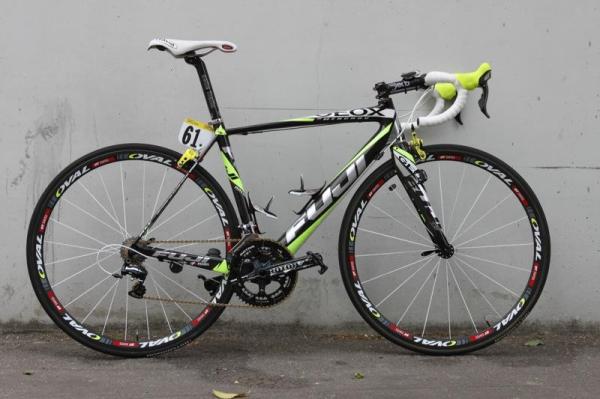
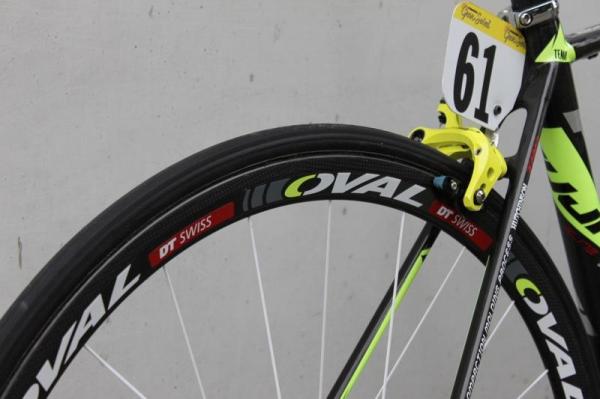
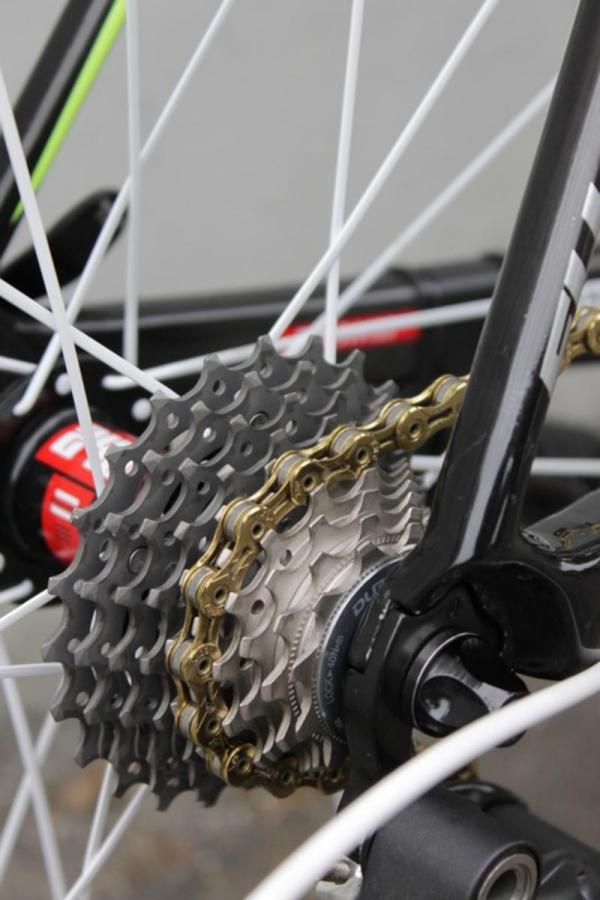
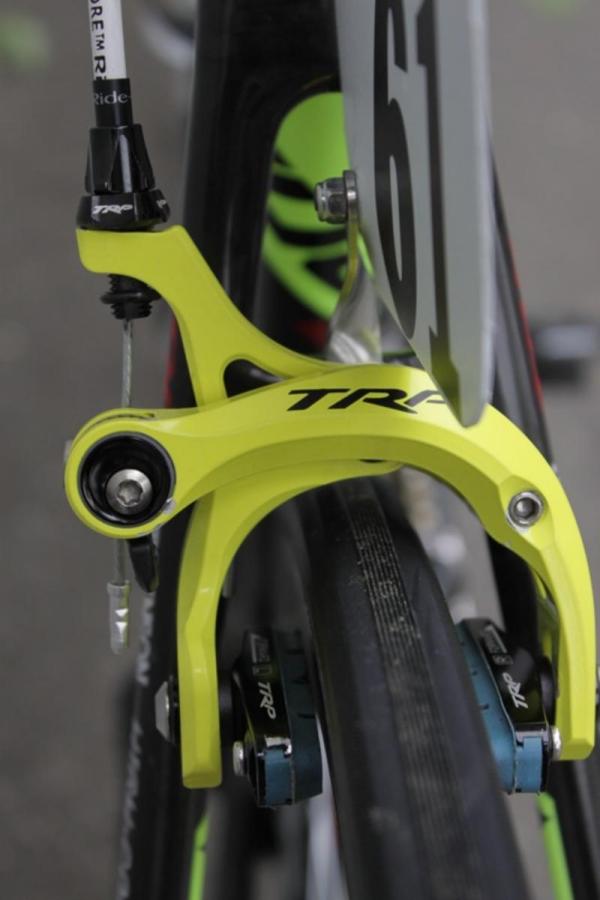
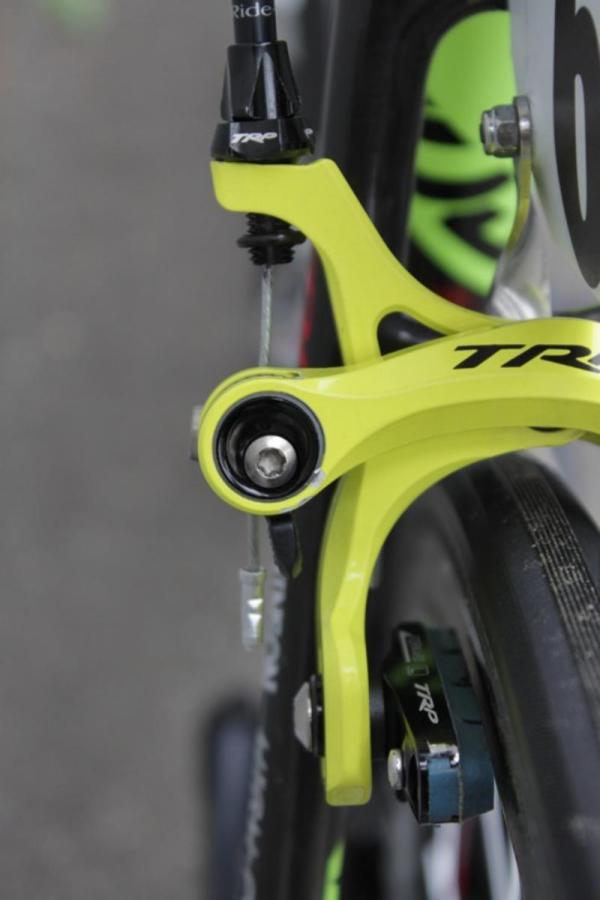
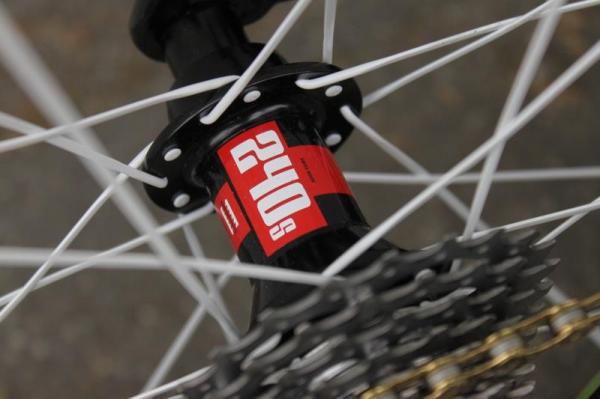
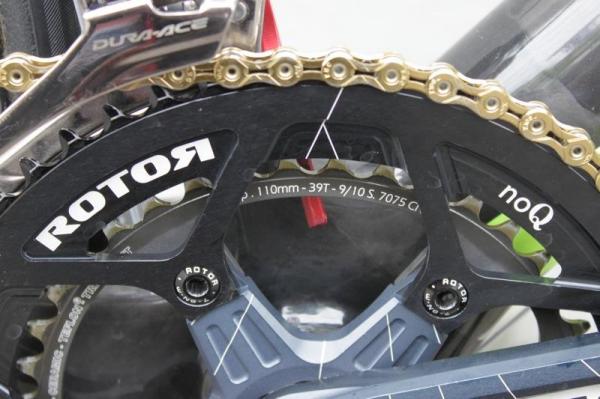
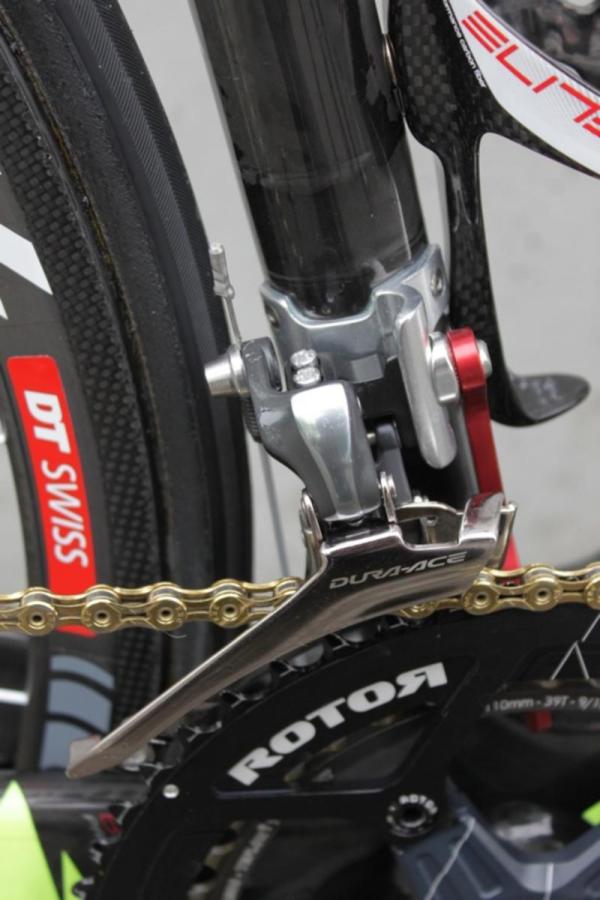
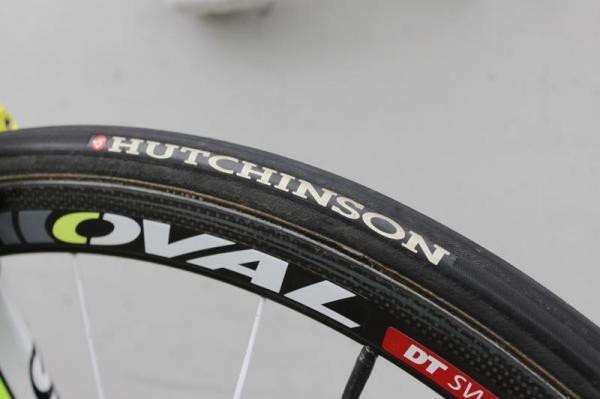
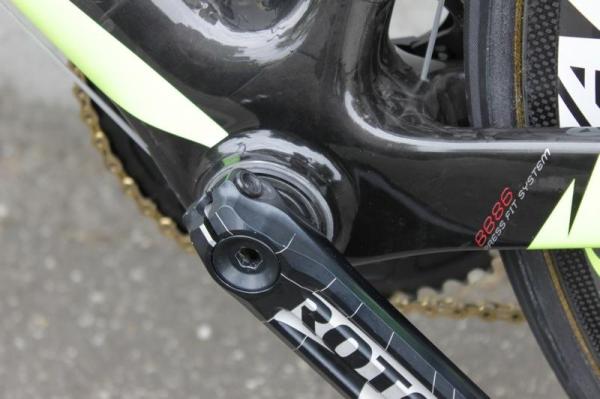
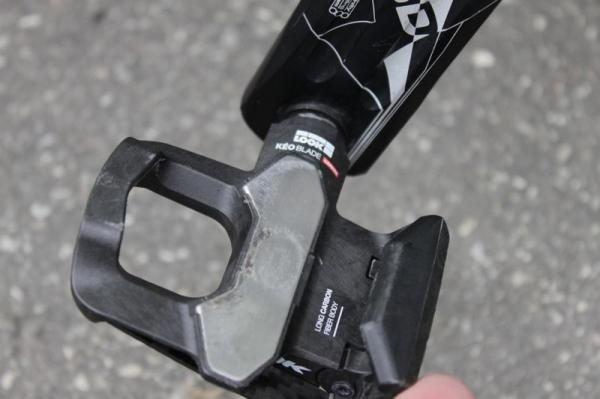
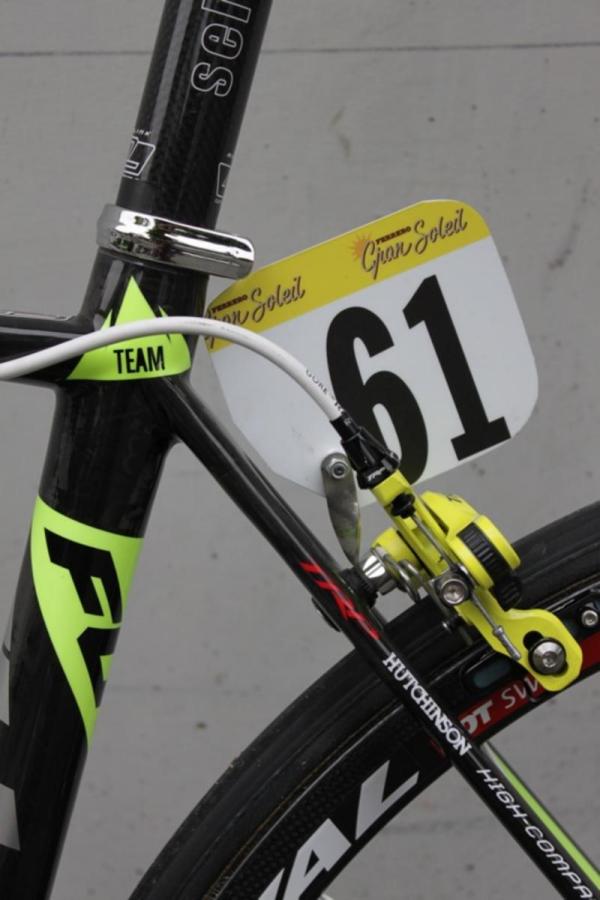
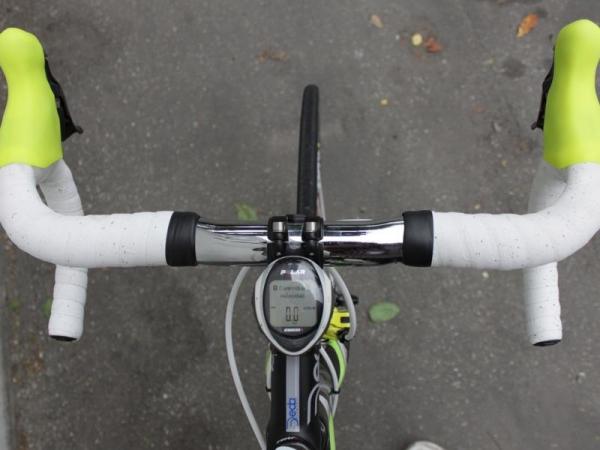
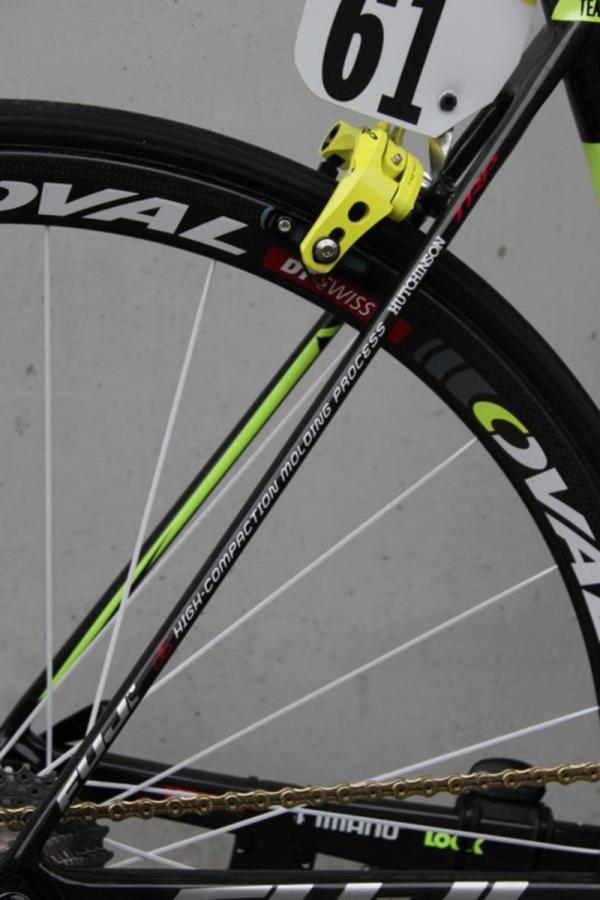
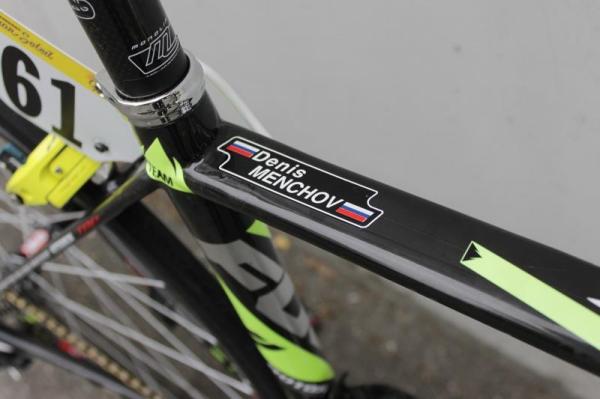
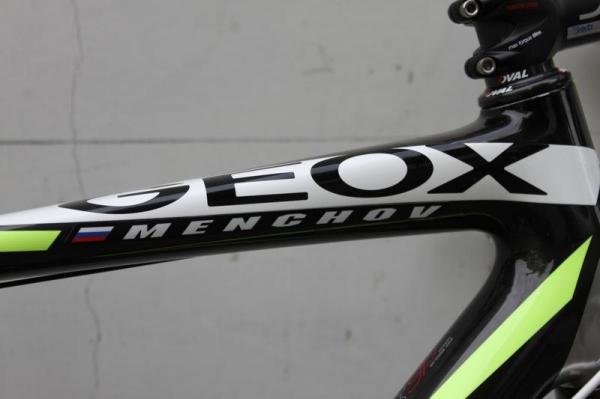
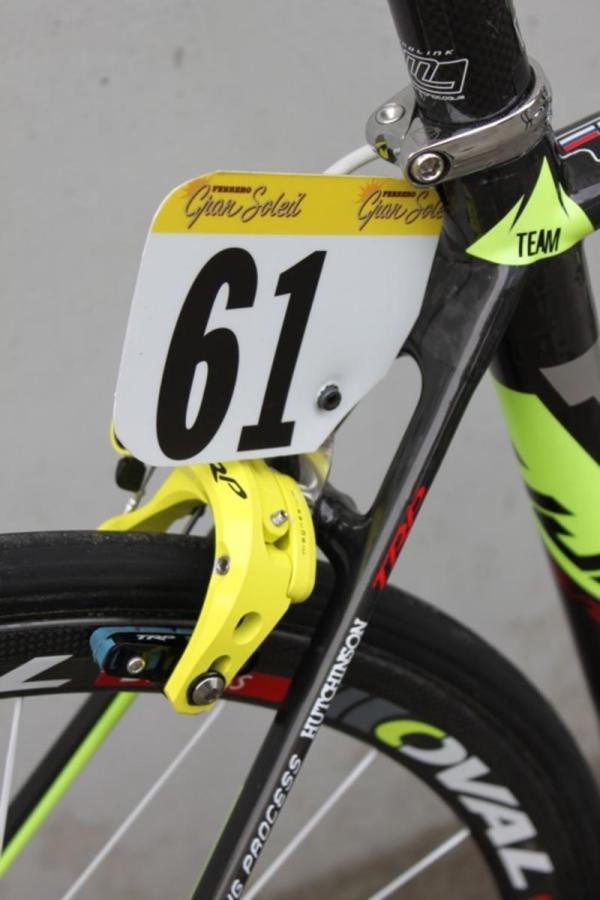
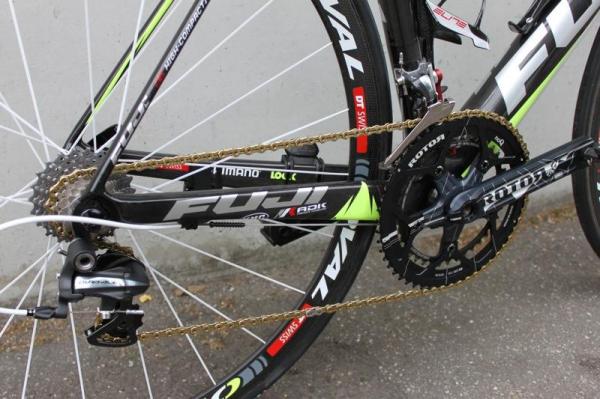
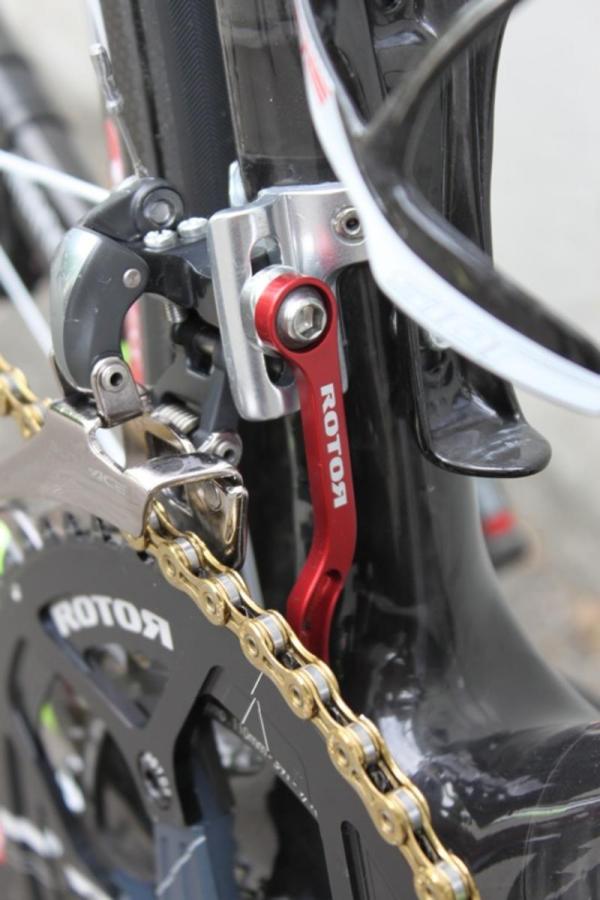
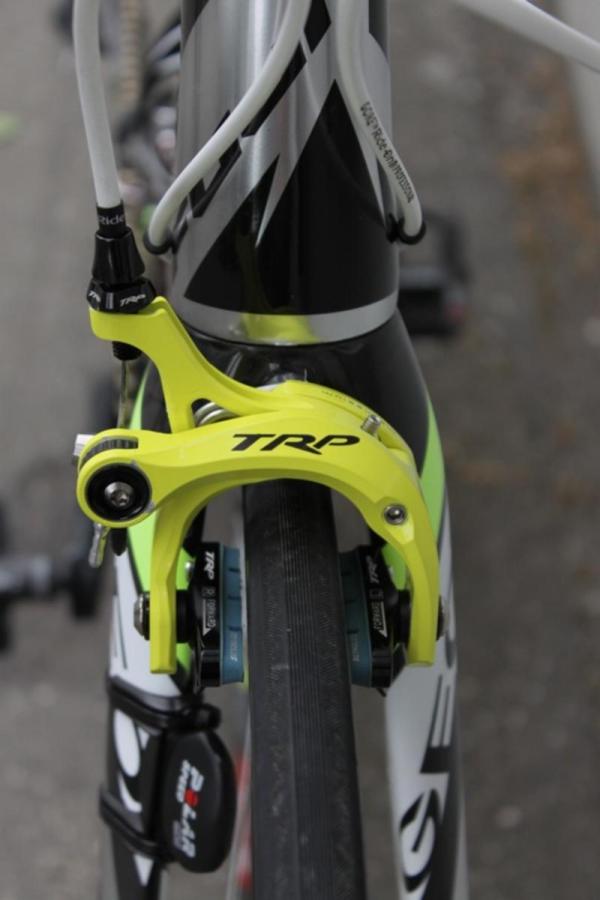
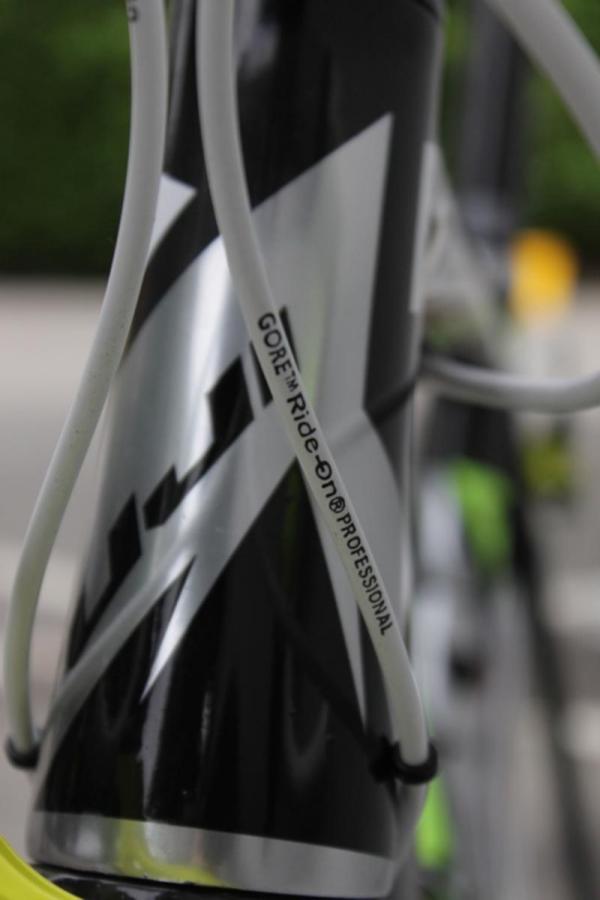
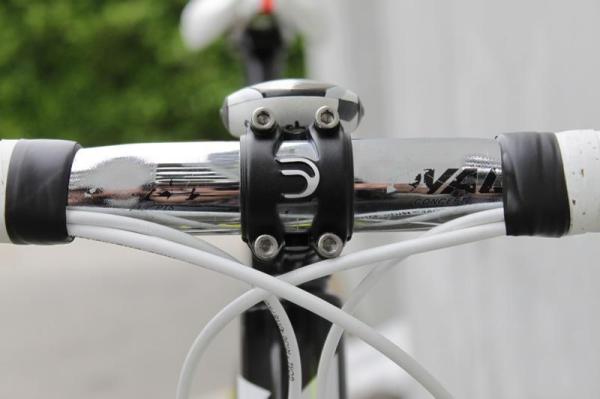
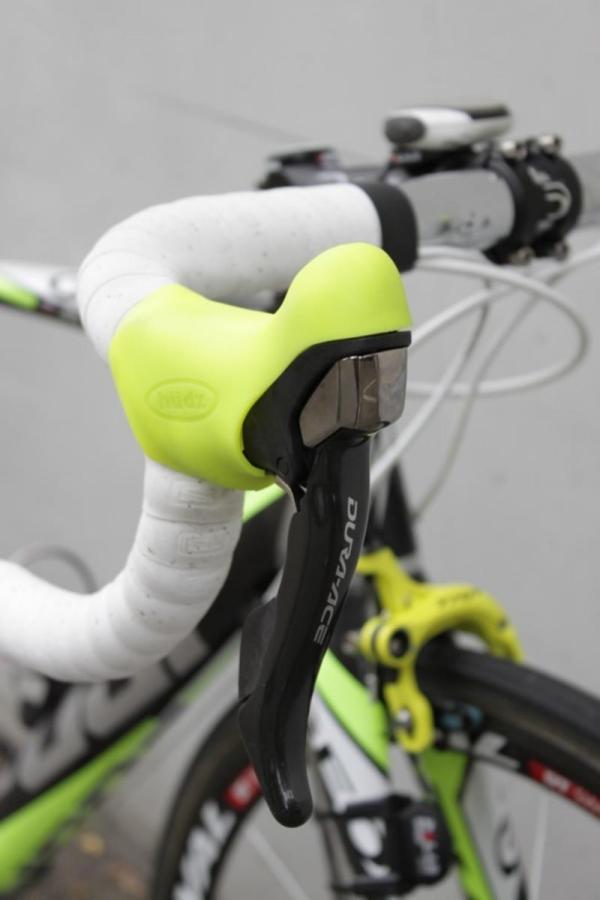
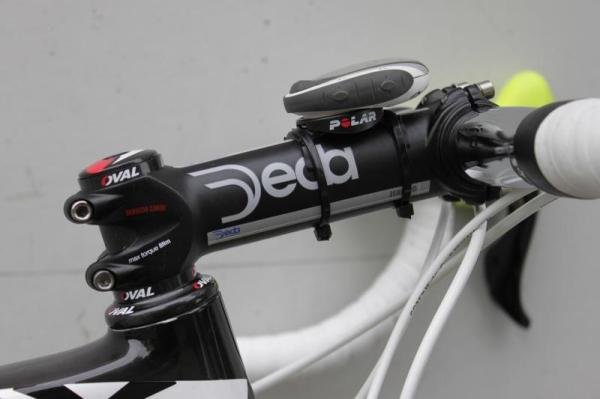
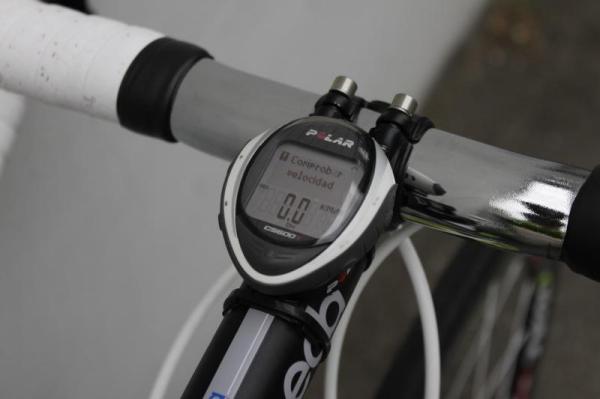
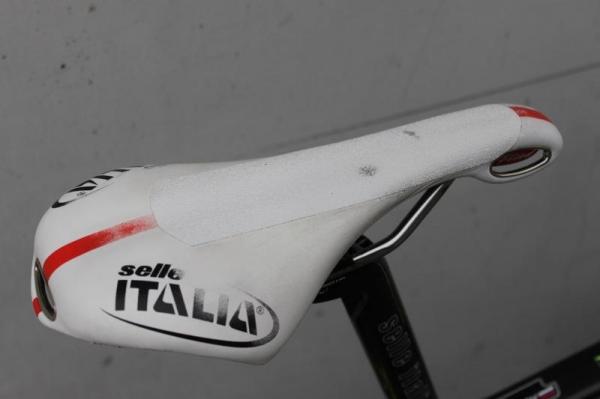
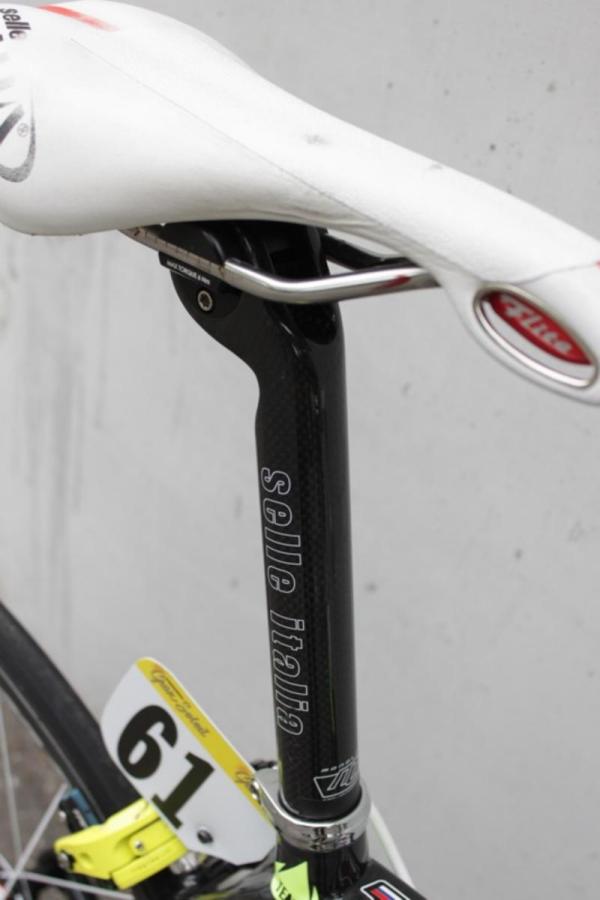
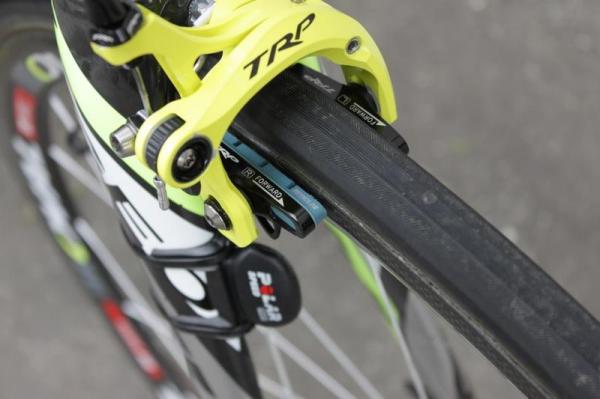
You might expect that a team leader would start a Grand Tour he's already won - and wants to win again - on a new machine. However, 2009 Giro d'Italia winner Denis Menchov (Geox-TMC) has this year brought the bike he'd been training on in the months prior to the race, his 2011 Fuji Altamira.
Fuji equip the whole of the newly named Spanish team - who they've sponsored for three years under different names - with the new model. "Altamira is a cave, maybe 30-40km from the service course in Spain," said David Anker, Fuji's team sponsorship liaison. "Forty thousand years ago, early humans made cave drawings in there, so it's a major milestone in the development of human kind. This bike is a major milestone in the development of our frames."
The Altamira frameset is built specifically for grand tour racing. It's light - claimed frame weight is under 1,000g - and described as stiff through the lower chassis, but still comfortable by a way of a tapered top tube and minimalist seat stays. "The Altamira is a new frame for 2011 for us," said Anker. "It's been in development for two years; we wanted to make the ultimate race platform.

The Altamira has flat, thin seatstays, in keeping with the current design trend. Photo: Matt Pacocha
"We have another frame called the SST - Super Stiff Team - which we unveiled in 2010 and was raced by the Fuji-Servetto team last year, and that bike, as its name implies, is more of a sprinter's bike. We wanted a bike that was a little bit lighter, with a little more compliant ride; sort of an all-round workhorse for the peloton, and that's this bike."
Fuji build the bike using a three-tube - top, head and down tube - monocoque front end, which is then molded to a second monocoque section encompassing the bottom bracket and chainstays. The seat tube and seatstays are separately molded, and all of the components are assembled using a modified tube-to-tube joining process. The joints of the frame components are said to be strategically placed in lower stress areas of the bike.
Keeping with current trends, the Altamira has a tapered 1-1/8in to 1-1/2in head tube and steerer, and a BB86 press-fit bottom bracket. Fuji use their D6 high-modulus carbon blend for the bike. "It's our highest level of high-modulus carbon," said Anker. "We use it in the top level of all of our bikes."
Get The Leadout Newsletter
The latest race content, interviews, features, reviews and expert buying guides, direct to your inbox!

Rotor cranks spin on ceramic bearings in alloy press-fit cups. Photo: Matt Pacocha
The Geox-TMC team pull together a number of manufacturers to outfit their bikes, which makes for a light, loud-looking package. The most eye-catching components are from TRP, in the form of their painted magnesium 970SL Team brakes, Colorado-based Hudz, with their custom-color brake hoods, and KMC, who supply their gold X10SL chain. The TRP brakes have a cam-style lever quick-release that was developed especially for the team and is just now becoming available for sale.
Shifters, derailleurs and cassette are from Shimano's Dura-Ace 7900 groupset. A Rotor 3D crank with an 110BCD spider and 39/53-tooth round rings complete the drivetrain. The whole of the team are riding with the compact BCD to make the bikes easily adaptable for the Giro's more difficult climbing stages.
For his cockpit, Menchov uses a 140mm Deda Zero100 stem and Oval Concepts 7000-series alloy 710 handlebar that sports bar-top sweep. Unlike other bars with anatomical sweep, the 710 sweeps forward roughly 1cm before angling back. This means the rider doesn't need to change stem length in order to achieve the proper reach.
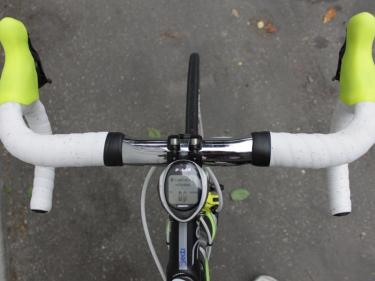
Oval's 710 bars sweep forward first then back to put a rider in a more anatomical position. Photo: Matt Pacocha
A well used Selle Italia Team Edition Flite saddle is perched atop Selle's own Monolink seatpost, which is set with a clamp so that it can accept standard rails. "He didn't want to change a damn thing," said Anker of the Russian's equipment choice in the lead-up to the Giro. "He's been running this saddle for the last two months. This is the bike he had at home for over a month. He doesn't want you to change even so much as a pedal on his bike. He doesn't want it a millimeter off to be in any way different from [what he's been training on] before."
While the rest of Geox-TMC's riders select from a quiver of DT Swiss wheels based on the day's course profile, Menchov always rides the team's 32mm RRC 32 tubular model. While this wheel choice won't differ throughout the Giro, Anker said Menchov is likely to ride larger tires for the stages with the worst road conditions. "Denis just likes the 32 [wheel]," said Anker. "He doesn't change except for cobbles or time trials. I think he's planning on riding 24mm tubulars on this rim [for the mountains]. Those descents are so complicated that they want every bit of advantage possible."
This article originally appeared on BikeRadar.
Complete bike specifications
Frame: 2011 Fuji Altamira
Fork: 2011 Fuji FC330, tapered 1-1/8in to 1-1/5in
Headset: Integrated, Oval Concepts, tapered 1-1/8in to 1-1/5in
Stem: Deda Zero100, 140mm, -6°
Handlebar: Oval Concepts 710 anatomical top sweep, 42cm
Tape: Scott synthetic cork
Front brake: TRP 970 Equipe (team) magnesium, cam-style quick-release, Reynolds blue compound pads for carbon
Rear brake: TRP 970 Equipe (team) magnesium, cam-style quick-release, Reynolds blue compound pads for carbon
Brake levers: Shimano Dura-Ace 7900
Front derailleur: Shimano Dura-Ace 7900
Rear derailleur: Shimano Dura-Ace 7900
Shift levers: Shimano Dura-Ace 7900 with custom colored Hudz hoods
Cassette: Shimano Dura-Ace 7900, 11-23T
Chain: KMC X10SL
Crankset: Rotor 3D, 110BCD, 39/53T
Bottom bracket: Rotor Press Fit, ceramic bearings, BB86 cups
Pedals: Look Keo Carbon
Wheelset: DT Swiss RRC 32 tubular
Rims: Reynolds 32mm tubular
Front hub: DT Swiss 240s
Rear hub: DT Swiss 240s
Spokes: DT Swiss Aerolite
Front tire: Hutchinson professional issue, 22mm
Rear tire: Hutchinson professional issue, 22mm
Saddle: Selle Italia Team Edition Flite
Seatpost: Selle Italia Monolink carbon for standard tubular rails
Bottle cages: Elite Sior
Computer: Polar CS600S
Other accessories: Alloy bottle cage bolts
Critical measurements
Rider's height: 1.78m (5ft 11in)
Rider's weight: 67kg/148lb
Saddle height, from BB (c-t): 760mm
Saddle setback: 75mm
Seat tube length, c-t: 510mm
Seat tube length, c-c: 490mm
Tip of saddle nose to C of bars (next to stem): 600mm
Saddle-to-bar drop (vertical): 105mm
Head tube length: 140mm
Top tube length: 54mm
Total bicycle weight: 6.95kg/15.32lb